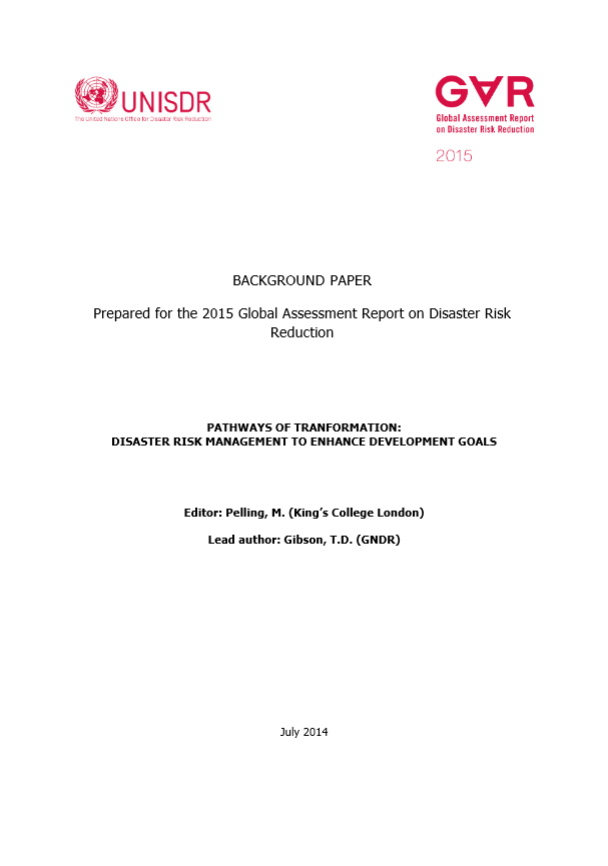This report offers a basic analytical framework to move from abstract discussion of development pathways to specific actions and responsibilities on the ground. To do this we have elaborated an actor based framework. This view builds on the work of earlier, alternative frameworks that have emphasised component parts of our framework, including work that has focussed on innovation and leadership (IPCC 2012), reflective decision-making (Matyas and Pelling 2014) and the interaction between development sectors as transformation emerges (Pelling et al 2014). Our core concern is to identify the interaction of actors (individuals and organisations) with dominant development pathways and here an actor oriented frame that can open the relationship between policy actors, constraining institutions and the structures that drive development trajectories provides most analytical leverage. Examples are built around five case studies (see Box 1). These are presented in the results section in some detail, this detail necessary to situate these events in respective development pathways and to then draw out the ways in which responding to or preparing for future disaster has touched pathway trajectory – by accident or design. We then discuss common features observed from these cases to allow some general comments on transformation in disaster risk management.
